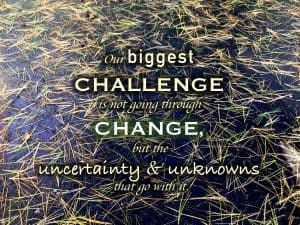Tina Hallis's Blog, page 25
October 28, 2018
You Use Your Teeth More Than You Use a Car – How Our Role Shifts Our Perspective
I was complaining that my teeth have cost me a lot of money. “In fact,” I whined, “I could buy a really nice car with all the money I’ve spent at the dentist.” The other person had no sympathy. She responded, “You use your teeth a lot more than you use a car.”
Her comment really helped me shift my perspective. She had a good point! Of course, her training as a dental hygienist helped shape her thoughts.
I find it fascinating how our perspective influences so many aspects of our lives. We may experience the same situation, the same information, as someone else, but we will likely interpret it differently based on our past experience, our training, our childhood, our culture, our personality, etc. This can lead to all kinds of conflict, frustration, and challenges at work and at home because we like our own perspective; we’re comfortable with it and we understand it.
Another emotional and amazing example is the courtroom scene from the movie, A Time to Kill. Samuel L. Jackson plays the role of a father who murdered two white men that raped and tortured his 10-year-old daughter. He did it because he believed these men would walk free because his daughter was African-American. The story takes place in Mississippi when the Ku Klux Klan was popular. It’s an all-white jury and the consensus is that it’s likely the father will hang. The defending lawyer of the father asks the jury to close their eyes while he retells the morbid details of what the little girl went through. As he finishes, he says, “Now imagine that she was white.” He’s changing their perspective by providing them with a huge role shift, from white jury member to horrified parent. As a result, the father is found innocent.
This week, as you encounter a situation, a person, an interaction; think about the perspective you bring. What role are you seeing it from? A parent? Your political party? Your religious beliefs? Your job as a caregiver, mechanic, engineer, dental hygienist, etc.? What if you were to shift roles and see it from a different perspective? How might that change your “interpretation”, your thoughts, words, and actions? How might it bring more understanding, more tolerance, more empathy? Give it a try!
October 21, 2018
Does the Thought of a Warm, Yummy Piece of Apple Pie Make You Hungry? Using the Power of Our Imagination

A couple of the women at my yoga class this past week were talking about making apple pie and their favorite recipes. As they described the smell and taste, I jokingly said, “Stop! You’re making me hungry.” I noticed that my mouth was watering and that I was craving a warm piece of apple pie.
Our imaginations are amazingly powerful! Here’s another example.
Have you ever heard a strange sound in the middle of the night? Our brains instantly try to figure out what it is. Could it be the cat? No. Maybe it’s some burglar at the window? Hmmm. If we start thinking it’s possible, our brain tells our body to get ready for danger. Our heart races and we’re wide awake.
Our brains are not good at differentiating between what’s real and what we imagine. If we think about something, like our favorite food, our brain and the rest of our body react as if it’s really happening. This can be a problem if we use our imagination to anticipate the worst, but it can also be a great tool if we visualize good things.
How can we take advantage of this fascinating phenomenon? Here are three ideas to get you started.
Imagine finishing a project or succeeding at a goal. Really focus on the great feeling of accomplishment. This can provide more motivation and energy to get it done.
Imagine an upcoming situation that you anticipate will be challenging (ex. a meeting or conversation). Now imagine that it goes very well. You stay calm and say things that are helpful. This can help you be mentally prepared for a potentially difficult interaction.
Imagine you’re at your very best today. You’re feeling good and able to be extra patient, motivated, focused, or whatever would be helpful for today. It’s much easier to make it happen now that your brain thinks it’s true.
Give it a try today. Using your imagination can be a great way to gain a positive edge 
October 14, 2018
The Powerful Formula for Staying Calm – Driving Gives Us Plenty of Opportunities to Practice

If we’re willing to put in a little effort for more happiness and less stress, life gives us plenty of opportunities to practice. A very powerful formula that I’ve been learning and using is –
Pause – Notice – Choose
The other day I was in the left lane on the Interstate, passing a car when another driver came up behind me and started flashing his headlights. I knew what this meant, Get out of my way! I’m in a hurry and you’re going too slow! I immediately thought, What a jerk and obnoxious driver! As he passed me, I noticed his license plates were from out-of-state. Of course! I thought.
But then I got curious. How interesting that I was having this reaction and these thoughts. What a great example of my status being triggered. I almost laughed. I also noticed how I started judging the other person, even though I knew almost nothing about them. I was able to remind myself that this reaction was normal but by pausing and noticing, it gave me the power to choose what I wanted to do and think in the next moment.
Pause – In that moment, when you feel you’ve been triggered, your emotions are rising, and the negativity is building, the first step is to pause.
Notice – If we can pause, we have the opportunity to notice our reaction. How are we feeling physically and emotionally? Is this a helpful reaction?
Choose – Now we have given ourselves the power to choose. What response would provide the most benefit and value for ourselves and others in this situation? Think long term and not just about immediate satisfaction.
I’ve been intentional about using this formula, and it’s made a big difference for me. I still have a long way to go, but progress, like on the Interstate, is worth the practice. Give it a try for yourself. I guarantee life will give you opportunities to use it almost every day.
October 7, 2018
My Career as I Knew It Was Over – Dealing with Change & Uncertainty

It was a Wednesday, Nov 7th, 2012. I had a meeting with my boss right away in the morning. Several minutes later, I was back at my desk, packing up my things. It was like an out-of-body experience — how fast things can change! After working there for 11 years, I was now part of the 4th set of layoffs that year. Talk about a tidal wave of the unknown! What did the future hold for me?
Deep down I knew I wasn’t going to search for another job in biotech. I had learned about Positive Psychology the year before, and I was convinced that my future would somehow include this life-changing science. So I decided to reinvent myself and start my own company. More change and uncertainty!
I was fortunate that I had already been studying and learning strategies from Positive Psychology. I don’t know how people get through so much worry and doubt about their future without the tools I was very grateful to have! For example, I had a regular practice of taking several slow, deep breaths to relieve my racing mind and pounding heart.
I had also learned that our brains react to uncertainty in the same way as if someone were physically trying to harm us. We feel like we’re in danger, so our fight and flight response is in full swing. In addition, our survival instinct tells us to anticipate the worst possible outcome, just so we can take actions to keep ourselves safe. These reactions can make change stressful, which is one of the reasons that organizations going through change bring me in to share this message.
I’ve learned that,
Our biggest challenge is not going through change, but the uncertainty and unknowns that tend to go with it.
When we understand where our anxiety about change comes from and why, it’s easier to acknowledge our feelings, remain calm, and change our story. The worst is very unlikely to happen and change brings new opportunities.
What changes and uncertainty are causing stress in your life? What messages from above can you remember to find more moments of peace and calm?
September 30, 2018
Choosing Happiness during a Crowded and Grumpy Bus Ride

I’m delighted to share this excerpt from an article by Ginny Sassaman and her company, Happiness Paradigm.
I had both my suitcase and my cup of coffee with me when I sank into the bus seat. The woman next to me did not like either of these items.
“Don’t let that touch me,” she said unpleasantly, pointing to the suitcase. “I have to go to work. Don’t get me dirty.” After I assured her that I was holding the suitcase tightly between my knees, she pointed at the coffee. “You’re not allowed to have that here. Didn’t you see the sign? No food. No drink.” Though her tone was decidedly hostile, she had a point. The coffee cup appeared to be against the rules. I apologized, explained that I didn’t know it was forbidden, and I wouldn’t do it next time. She glared back at me. “You’re American,” she practically hissed. “You should know!”
Okay. So there we were. Seatmates for another 10 or 15 minutes. I could let her get to me, and bark back with some witty insult I’d regret later. I could ignore her, which would still be uncomfortable — not only for me, and maybe her, but also the others immediately surrounding us. The negative energy of this encounter was infecting them, too.
Or, I could choose happiness. So, I turned on my mediator training/active listening skills. “You’re not American?” I asked her. “Where are you from?” Rome, she answered. “Oh, Italy! How wonderful!” I talked about my favorite Italian writer, Piero Ferrucci, and the melodious quality of Ferrucci’s language in his kindness book. Ah, yes, she agreed — it is a beautiful language. I found out that she was going to work in her church. That her mother was only half Italian, having grown up in Philadelphia. Philadelphia — where my daughter lived for many years, so we had something in common. We chatted about that coincidence.
Rather quickly, my seatmate’s iciness thawed even though she remained worried I’d spill my coffee on her. I have to say, those who know me know that’s a legitimate worry! I definitely did not want to spill the coffee on her white skirt; I was being extra careful with how I held my cup. Then my neighbor seemed to absolve me of all wrongdoing. Pointing at the cup, she said, “It’s not your fault. The bus driver should have told you when you got on.”
All was well. Thanks to my conscious decision to at least attempt to increase everyone’s happiness, I got off the bus smiling as my new Roman friend wished me a good day. She was smiling, too.
What a great story about choosing happiness even when the other person is showing hostility!! Think of a past situation where someone was less than warm and friendly to you. What did you do? Would you do anything different after reading this story? Or maybe keep it in mind for your next “interesting” interaction.
Ginny Sassaman is the founder of the Happiness Paradigm. Besides speaking and training on happiness topics, she is also a happiness coach, conflict coach, and a professional mediator. In 2009, Ginny joined with others in central Vermont to co-found Gross National Happiness USA, the first grassroots organization in the United States focused on this hopeful path forward to a sustainable future. Since January 2017, she has served as President of GNHUSA. You can support that work by signing the Charter for Happiness!
September 23, 2018
Happiness is about balance – The lasagna principle & too much of a good thing

I love opportunities to get together with my friends; to chat and have fun. But I also look forward to those days where I’m at home, by myself. I’ve come to recognize that finding the right balance is key for my wellbeing and happiness.
Is it really possible to have too much of a good thing like spending time with friends? I remember when Tal Ben-Shahar described it as the “Lasagna Principle” when I took his Certificate in Positive Psychology course. He also discusses it in his best selling book, Happier. He explains that we will be happier if we can recognize that our capacity to enjoy different activities is limited and unique. For example, Tal’s favorite food is his mom’s homemade lasagna; yet that doesn’t mean he wants to eat lasagna every day. This concept of finding balance applies to all of our favorite activities and favorite people.
“Just because my family is the most meaningful thing in my life does not mean that spending eight hours a day with them is what would make me happiest; and not wanting to spend all my waking time with them does not imply that I love them any less” – Tal Ben Shahar, Ph.D
Tal points out that when we notice our inner feelings and thoughts, we are much better at knowing which activities bring us happiness and how much times is the best to spend on each one. Recognizing both (activities and time spent) is what creates the highest quality of life without guilt and without losing our appreciation for what makes us happy. We need variety and novelty, and we need to find what combination works best for us.
Think about the things and people that boost your mood and happiness. Now consider what might be the ideal amount of time for each. Think about finding the right balance.
September 16, 2018
Four Things I Wish I’d Known Years Ago. Life-Changing Insights from Positive Psychology

1. Getting stuck in negative thoughts is normal.
Let’s be honest. Work can be hard! There can be too much to do, making us feel overwhelmed and stressed. Sometimes there are issues with other people; our co-workers, our bosses, our customers. At home, we can have challenges with our finances, our health, our family, etc. The list goes on, so it’s easy for us to spend a lot of time dwelling on, remembering, and anticipating all the bad stuff. I learned that this is a normal response that has a lot to do with our survival instinct to keep ourselves safe. The problem is we can get stuck in these negative thoughts.
2. Our thoughts drive our emotions, moods, and actions.
I also learned that our thoughts are a driving force in many parts of our lives. Just imagine how this kind of negative focus can impact our moods, what we say and do, our relationships, our happiness, etc. It can eat away at our well-being both physically, emotionally, and mentally.
Just to be clear, I’m not talking about the kind of focus where we’re making plans on how to fix the bad stuff. The type of worrying and dwelling that I’m talking about has no benefit at all! It is a total waste of time and energy.
3. We have a choice. We don’t have to stay in negative thoughts.
So why do we do it? Why don’t we stop and use that time and energy for something useful that can make our lives better? For many of us, it’s because we don’t even realize we’re doing it. It becomes a habit, a natural way of seeing the world through this negative filter. Some of us do realize it’s happening, but we don’t know what we can do about it. And others may think we can’t change or they simply don’t know how.
Positive Psychology taught me that we have a choice. We have the ability to override our survival instinct and shift our thoughts to find more positivity so we don’t get stuck.
4. There are practices we can do to make that choice easier
Just imagine how our quality of life, happiness, and everyday experiences could change if we would just spend a few minutes a day paying attention to our thoughts and noticing when we need to choose better. I was super excited to discover that there are simple ways to make this easier. Research in Positive Psychology is finding that there are many helpful practices, but we each need to experiment to see what works for us, our situation, and our personality. That’s why I write these tips, and that’s why I published my book; to provide a variety of tools to choose from.
Which tip are you going to try this week? Browse my blog or get my book for more ideas.
September 8, 2018
Is Your Life Like Riding the Bumper Cars at the Fair? Living a Purposeful Life

Do you ever feel like your life is living you instead of the other way around? Maybe there’s too much to do and no time to pause and consider what you actually want to do. Maybe it feels like you’re riding the bumper cars at the fair. Other drivers are constantly bumping into you, pushing you every which way. You’re continuously reacting to each collision, backing up, turning around, just in time to get rammed again.
This can be fun if it’s just a game and you’re not trying to go anywhere. But if you continually let your decisions, action, and emotions be reactions to what life throws at you, you’re just surviving instead of choosing your life.
What can you do to live a more purposeful life? Here are a couple of ideas to get you started.
Clarify Your Values
First, get clear on what’s important to you. Think about causes you’re passionate about, key values that you want to uphold in your life or characteristics and traits that reflect your best self. These could include anything from wanting to be kinder and more patient with others to being an advocate for the homeless. Be true to yourself by being on the lookout for those things that are really other people’s priorities (your parent, boss, partner, etc.). After some inner reflection, you may come up with several ideas you want to set intentions around or you may find there’s one dominant focus that stands out.
Make It Easier
Find ways to make it easier to live your intentions. Surround yourself with people who support you in your journey. Sharing your vision with helpful family and friends is encouraging and fun. You might also need to make the tough choice of staying away from those individuals who aren’t supportive and who bring you down.
Tame Your Mind
Tame your thinking to quiet the negativity that can sabotage your efforts. Experiment with mindfulness practices. Try setting alarms on your phone and every time they go off, pay attention to what you’re thinking in that moment. Use a common trigger like a stop sign. When you see it, pause and reflect on your current thoughts. Are they serving you?
To live your best life and be your best, most authentic self, you need to notice your ingrained reactions and then purposely choose how to move forward or respond. This gives you the amazing power to create and design the kind of life you want to live and how you want to be in that life. Experiment with these ideas this week. For more ideas, see the full article in the September 2018 issue of Brava.
September 2, 2018
Three Ways We Sabotage Our Happiness in the Moment

Imagine that right now, in this moment, life is good. You’re not in pain or discomfort. There are no immediate crises, problems, or dangers. So you take a deep breath and smile.
But then it hits you. . . Winter’s just around the corner! It’s going to get cold. There will be snow and ice and bad roads. The days will be short with long stretches of darkness. You’re concerned about the price of natural gas this winter. Will it be expensive to heat your home?
And you remember that your mom has a doctor’s appointment next week. Will they find anything wrong? Will her blood pressure be OK? What about that pain in her leg?
And then you remember how last year, you had such a frustrating time with a doctor’s bill of your own. They overcharged you and didn’t file the right paperwork so your insurance was refusing to pay it. It took several phone calls and hours of your time to sort it out. And in the end, you still felt you paid more than was fair.
These are just a few examples of how we sabotage our own happiness. Even when things are good, our mind can easily find something negative to think about and put a shadow over our happiness. Common ways we do this are –
Worrying about some future event or situation
Remembering and dwelling on a past frustration or drama
Thinking that things are too good to be true and wondering what bad thing is going to happen
This week, try to get better at noticing your thoughts and catch yourself sabotaging your happiness. Then refocus on the peace and goodness in the current moment and enjoy.
August 26, 2018
Pardon My Grumpiness – My Stomach Is Growling

Have you ever noticed how your mood can shift when you’re hungry? How about when you’re feeling tired and worn out? Or when you’re extra stressed? I find I become less patient, more grumpy, and more irritable under these conditions. But being aware of this and making others around me aware has been a big help.
“Just so you know, I’m feeling wiped out today. Please excuse me if I come across as grumpy or short-tempered,” can be incredibly valuable to share with your coworkers or family. Now they aren’t wondering what they did wrong and aren’t as easily offended by your behavior (cortisol demons).
A few weeks ago, my 12-year-old daughter was going to help me out with an upcoming talk I had at a conference. It was downtown so there would be challenges with one-way streets, parking, and dropping boxes of books off at the hotel. And I had also hired a videographer to record me, so I was feeling extra stress about the entire event.
In the car, I made a point of letting her know my concerns. I asked for forgiveness ahead of time in case I did or said something out of frustration. I could tell she understood my mood and was grateful for the forewarning.
The great part about this story is that a couple of weeks later, she shared her thoughts with me. She was stressed about an upcoming friend gathering and knew she was feeling irritable so she let me know. Suddenly I felt more empathy and patience towards her.
When we can see behind the scenes as to why someone is acting grumpy, it makes it much easier for us to be more tolerant and not be grumpy back. And when we voice our feelings, we give others permission to do the same, so everyone benefits.
Give it a try at work, with friends, or at home. If you notice some irritability creeping in because of hunger, tiredness, stress, etc. let those around you know and encourage them to do the same.



